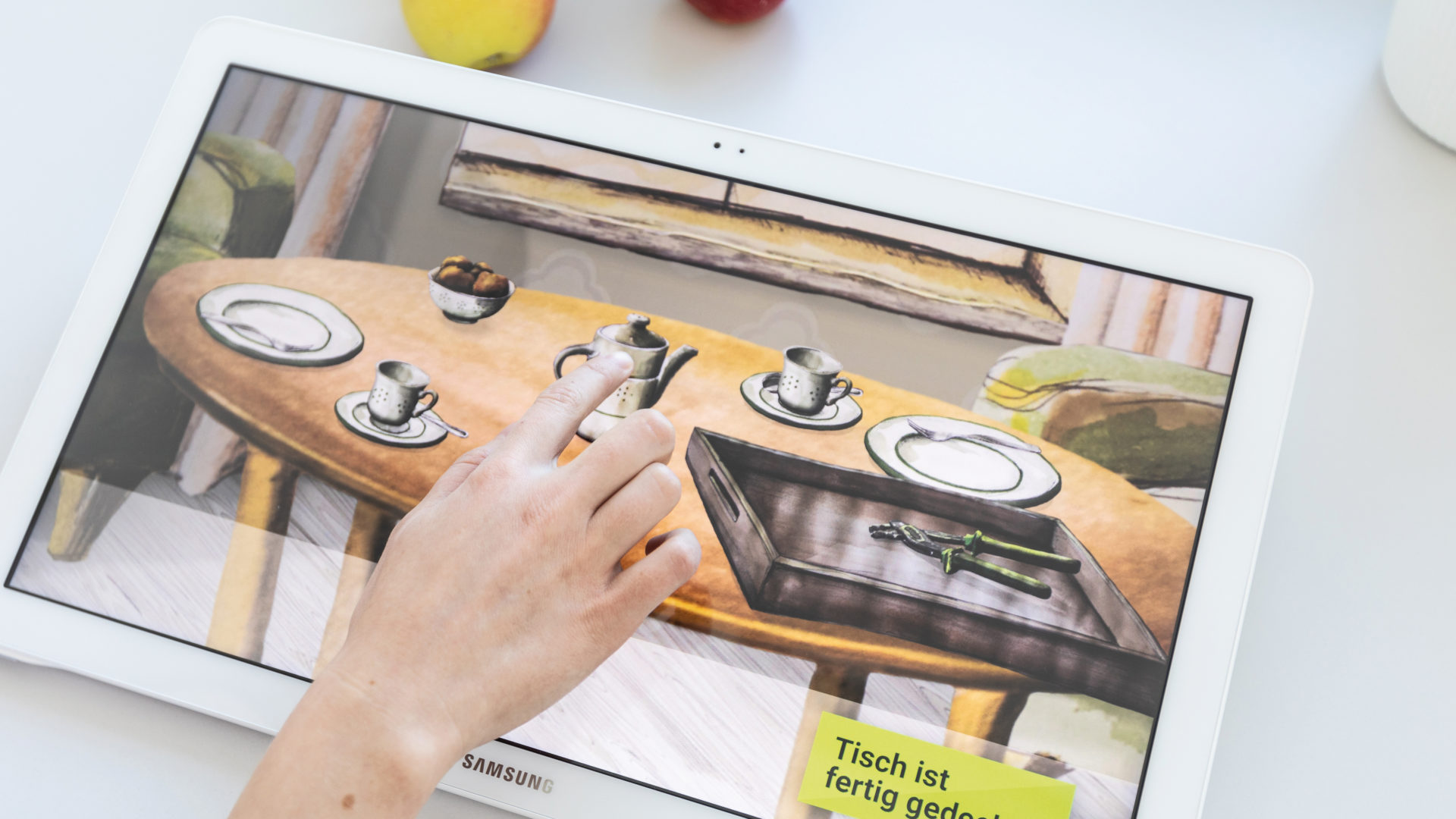Computer game to stimulate people living with dementia
“TagAktiv”, a computer game for people with dementia, has been developed at Fraunhofer IPA. It is used for everyday practical and cognitive activation and is based on MAKS therapy.
There are currently around 1.6 million people in Germany living with dementia. They require a significant amount of care and attention. In addition, the Long-Term Support Care Act now grants them a right to live a more active life. Their everyday practical and cognitive abilities, such as their retrospective memory and planning and execution skills, should be maintained for as long as possible. For this purpose, around ten years ago, doctors at the University Hospital Erlangen developed MAKS therapy (Motoric, Everyday Practical, Cognitive and Social Activation).
MAKS therapy has had a demonstrably positive effect on the course of the disease. The disadvantage of the treatment is that it is personnel-intensive. This is exactly where the Image and Signal Processing Department at Fraunhofer IPA comes in with its computer game “TagAktiv”. It is played on an 18-inch tablet PC and in this way relieves the nursing staff. The graphics are designed in such a way that they appeal to older people and encourage them to get to grips with the game.
The focus is on fun
The virtual flat in which “TagAktiv” is set radiates a feeling of pure comfort with its nostalgic furnishings and dark green wingback armchairs. There is a kitchenette with a coffee machine, a dining table, a floor lamp, a radio, a bookshelf and a Welsh dresser. In the entrance area there is a shoe rack and a hat stand. There are pictures and a large clock on the walls. It is afternoon and visitors will be arriving soon. A cake is in the oven.
The tasks the player has to complete are everyday ones, such as switching on the radio and the standard lamp, setting the table, taking the cake out of the oven and opening the front door. The aim of “TagAktiv” is the everyday practical and cognitive activation of people with dementia. The game is intended to make older people want to play and enjoy it. For this reason, dementia patients have been involved in the design of the game. Senior citizens at a care home in Reutlingen described their personal tastes to design the home accordingly, such as with the wingback armchairs, radio and filter coffee machine.
